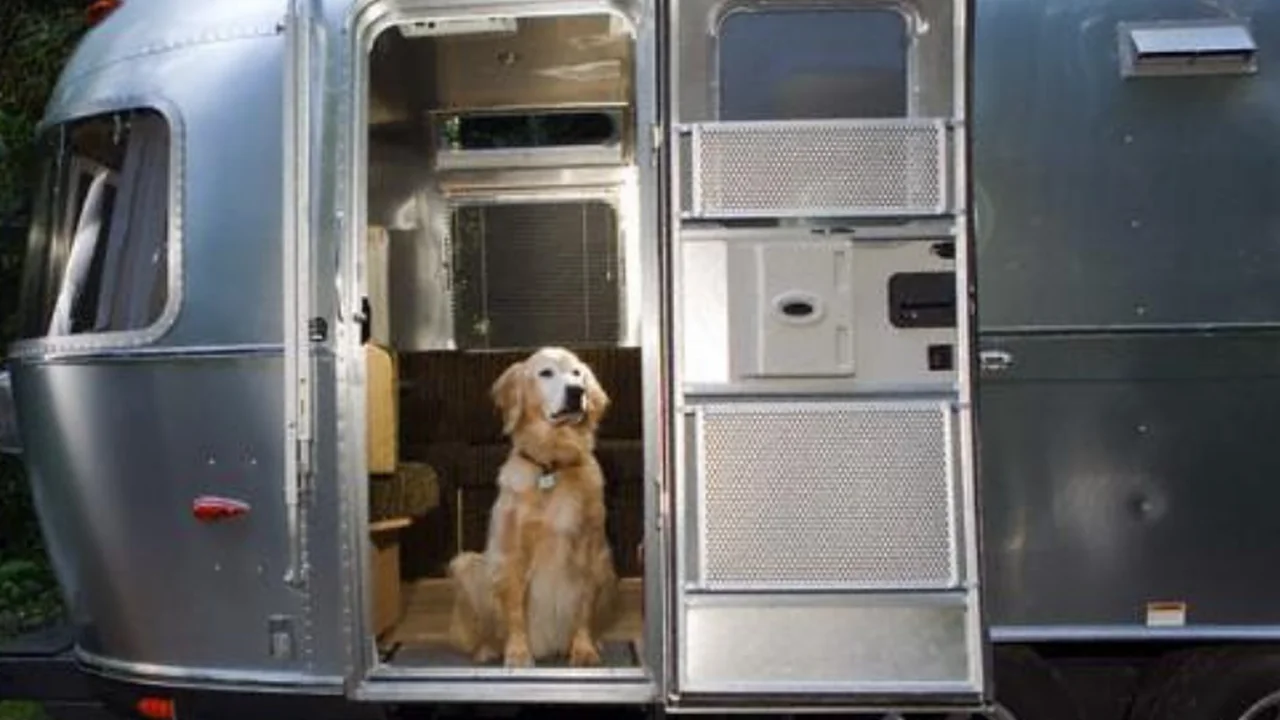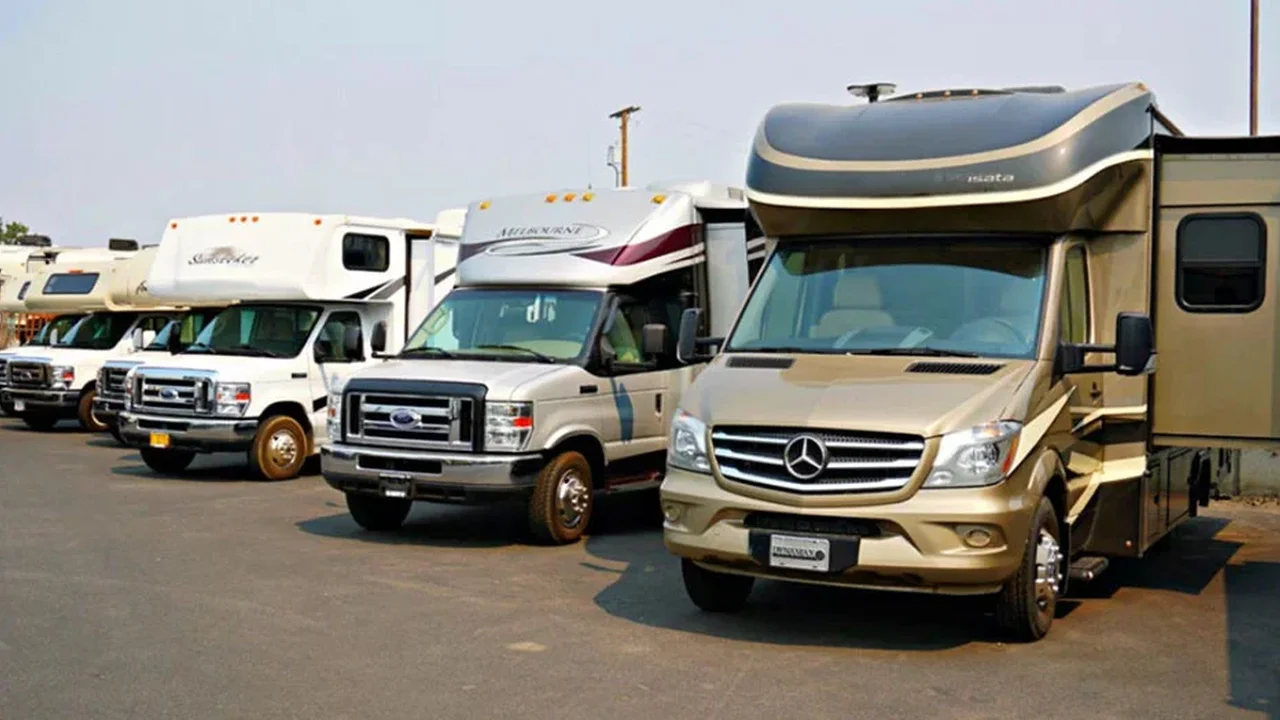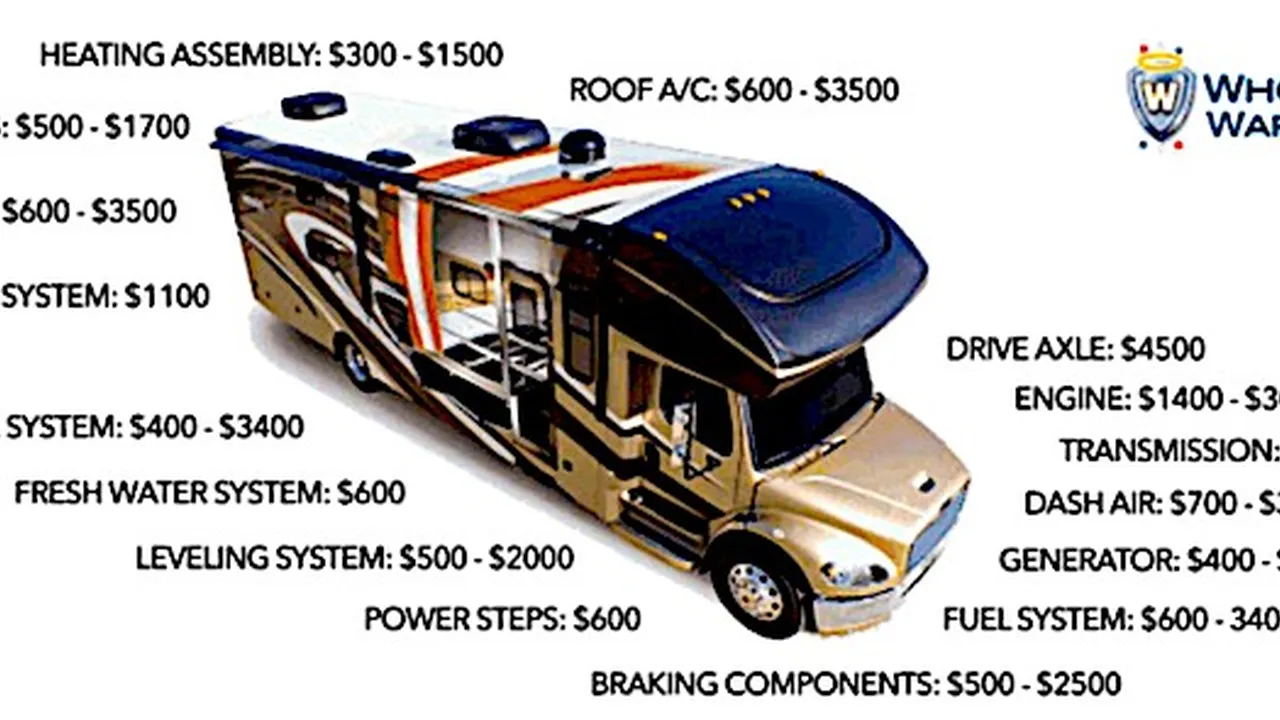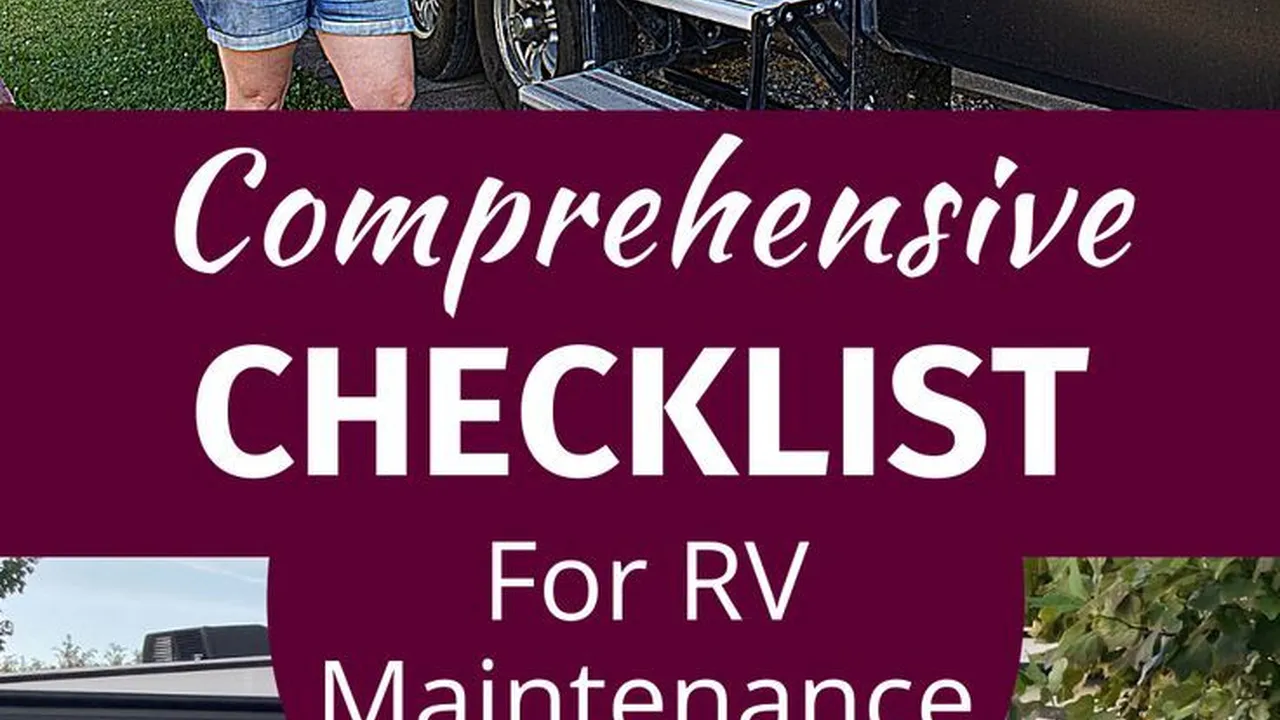RV Meal Planning: Easy and Delicious Recipes
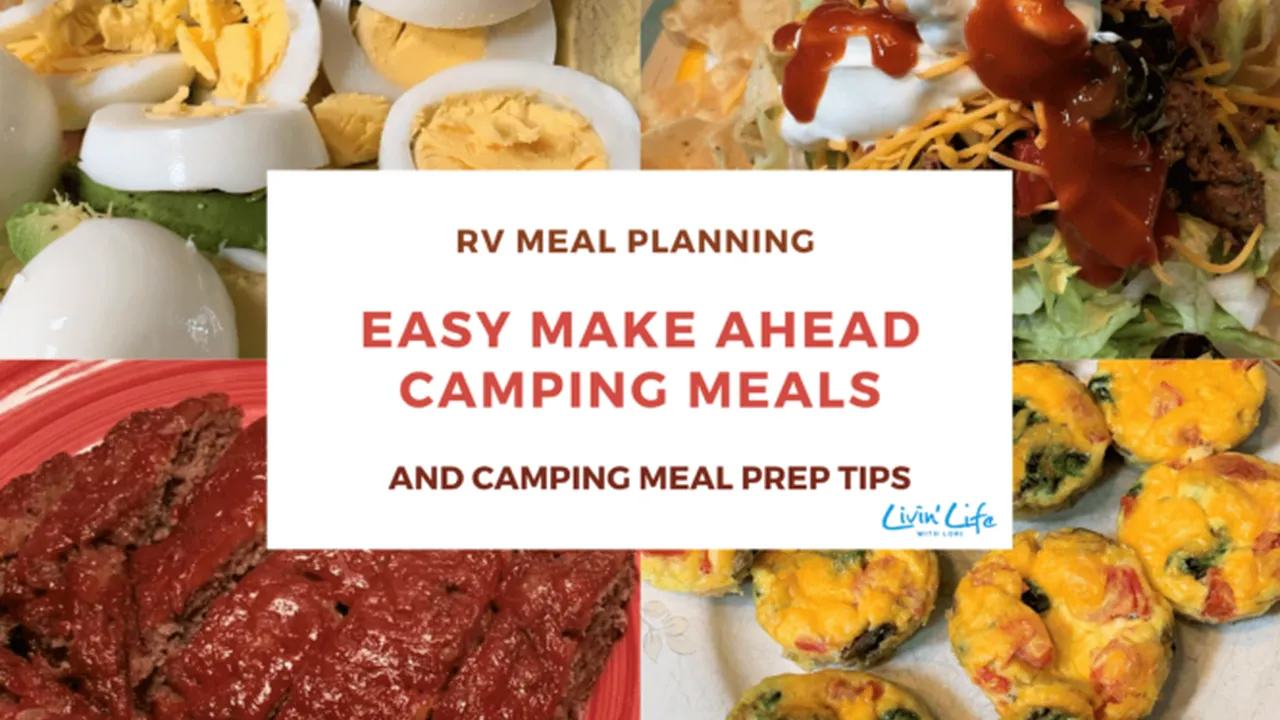
Understanding the RV Lifestyle Embracing the Freedom of the Road
So, you’re thinking about hitting the open road in an RV? Fantastic choice! The RV lifestyle offers a unique blend of freedom, adventure, and comfort. But before you pack your bags and point your rig toward the horizon, let’s dive into what it really means to live the RV life.
The RV lifestyle is more than just vacationing. It’s about embracing a minimalist approach to living, prioritizing experiences over possessions, and connecting with nature on a deeper level. It's about waking up to a new vista every day, choosing your own backyard, and building a community of like-minded travelers.
But it’s not all sunshine and roses. RV living also comes with its own set of challenges. Space is limited, resources need to be conserved, and unexpected repairs can happen at any time. That’s why organization is key to a successful and enjoyable RV experience.
Essential RV Organization Tips Maximizing Space and Minimizing Clutter
Space is a precious commodity in an RV. Every square inch counts! Here are some essential organization tips to help you maximize your space and minimize clutter:
- Declutter Ruthlessly: Before you even start packing, go through everything you own and get rid of anything you don’t absolutely need. Be honest with yourself – that fancy gadget you bought last year but never used? Donate it!
- Embrace Vertical Storage: Think up! Use wall-mounted shelves, over-the-door organizers, and hanging baskets to maximize vertical space.
- Multi-Functional Furniture is Your Friend: Opt for furniture that serves multiple purposes. A sofa bed, a storage ottoman, or a table that folds down are all excellent choices.
- Utilize Every Nook and Cranny: Look for hidden storage opportunities. The space under your bed, the area behind your seats, and even the inside of your cabinet doors can be used for storage.
- Invest in Storage Containers: Clear plastic bins are your best friend. They allow you to see what’s inside without having to unpack everything. Label them clearly for easy access.
- The One In, One Out Rule: For every new item you bring into your RV, get rid of something else. This will help you prevent clutter from accumulating.
- Keep it Tidy Daily: A few minutes of tidying up each day can make a huge difference in maintaining a clutter-free RV.
RV Storage Solutions Product Recommendations and Use Cases
Now, let's talk about specific products that can help you get organized. Here are a few of my favorites, along with their use cases and pricing information (prices may vary depending on the retailer and current promotions):
Over-the-Door Organizer: SimpleHouseware Crystal Clear Over The Door Hanging Pantry Organizer
Use Case: Perfect for storing toiletries, cleaning supplies, or pantry items in a small space. Hang it on the back of your bathroom door, pantry door, or even inside a closet.
Detailed Information: This organizer features clear pockets so you can easily see what's inside. It's made of durable material and can hold a surprising amount of weight. It requires minimal assembly and hangs easily on most doors.
Pricing: Approximately $20-$25
Under-Bed Storage Containers: Sterilite 20 Qt Clear Storage Box
Use Case: Ideal for storing clothes, shoes, or other bulky items under your bed. The clear design allows you to easily identify the contents without having to pull everything out.
Detailed Information: These containers are made of durable plastic and feature a snap-tight lid to keep your belongings safe and secure. They are also stackable, which helps to save space.
Pricing: Approximately $8-$12 per container
Collapsible Laundry Basket: CleverMade Collapsible Laundry Basket
Use Case: A must-have for any RV, this laundry basket collapses flat when not in use, saving valuable space. Perfect for storing dirty clothes until you can do laundry.
Detailed Information: Made of durable material and featuring sturdy handles, this laundry basket is easy to carry and can hold a large load of laundry. It's also easy to clean.
Pricing: Approximately $25-$30
Hanging Closet Organizer: Homyfort Hanging Closet Organizer
Use Case: Maximizes closet space by providing multiple shelves for storing clothes, shoes, or accessories. Perfect for organizing your wardrobe in a small RV closet.
Detailed Information: Made of breathable fabric and featuring sturdy hooks, this organizer hangs easily in your closet and can hold a surprising amount of weight. It's also collapsible for easy storage when not in use.
Pricing: Approximately $15-$20
Magnetic Knife Strip: Modern Innovations 16 Inch Stainless Steel Magnetic Knife Bar
Use Case: Keeps knives safely stored and easily accessible in your RV kitchen. Saves counter space and prevents knives from getting lost in drawers.
Detailed Information: This magnetic knife strip is made of strong stainless steel and features a powerful magnet that will securely hold your knives. It's easy to install and clean.
Pricing: Approximately $20-$25
RV Kitchen Organization Creating a Functional and Efficient Cooking Space
The RV kitchen can be a challenging space to organize, but with a few clever strategies, you can create a functional and efficient cooking area.
- Invest in Nesting Cookware: Nesting pots and pans take up significantly less space than traditional cookware.
- Use Magnetic Spice Racks: Attach magnetic spice racks to the side of your refrigerator or cabinet to keep spices organized and easily accessible.
- Hang Utensils on a Rail: Install a rail with hooks to hang utensils, saving drawer space.
- Use Drawer Dividers: Drawer dividers help to keep your drawers organized and prevent items from shifting around during travel.
- Choose Collapsible Bowls and Strainers: Collapsible bowls and strainers take up minimal space when not in use.
- Store Food in Airtight Containers: Airtight containers keep food fresh and prevent spills during travel.
RV Bathroom Organization Maintaining a Clean and Comfortable Space
The RV bathroom is often the smallest room in the RV, so it's important to maximize every inch of space.
- Use Over-the-Toilet Storage: Over-the-toilet storage units provide extra space for storing toiletries and other bathroom essentials.
- Install a Shower Caddy: A shower caddy keeps your shampoo, conditioner, and body wash organized and within easy reach.
- Use Suction Cup Hooks: Suction cup hooks are a great way to hang towels, washcloths, and other items without damaging the walls.
- Store Toiletries in Stackable Bins: Stackable bins help to keep your toiletries organized and prevent clutter.
- Use a Hanging Mesh Organizer: A hanging mesh organizer can be used to store small items like hairbrushes, combs, and makeup.
RV Bedroom Organization Creating a Relaxing and Organized Sleeping Area
Your RV bedroom should be a relaxing and organized space where you can unwind after a long day of travel.
- Utilize Under-Bed Storage: As mentioned earlier, under-bed storage is a valuable asset in an RV. Use it to store clothes, shoes, or other bulky items.
- Use Bedside Organizers: Bedside organizers provide a convenient place to store your phone, books, and other essentials.
- Install Shelves Above the Bed: Shelves above the bed provide extra storage space for books, photos, or other decorative items.
- Use a Clothes Hamper with a Lid: A clothes hamper with a lid keeps dirty clothes out of sight and prevents odors from spreading throughout the RV.
- Keep a Small Trash Can in the Bedroom: A small trash can in the bedroom makes it easy to dispose of tissues, wrappers, and other small items.
RV Exterior Organization Keeping Your Gear Secure and Accessible
Don't forget about organizing the exterior of your RV! Keeping your gear secure and accessible is essential for a smooth and enjoyable trip.
- Use a Cargo Carrier: A cargo carrier attached to the back of your RV provides extra storage space for bulky items like camping gear, bikes, or kayaks.
- Invest in Locking Storage Boxes: Locking storage boxes keep your tools, hoses, and other equipment secure and protected from the elements.
- Use Bungee Cords and Straps: Bungee cords and straps are essential for securing items inside your storage compartments.
- Label Your Storage Compartments: Labeling your storage compartments makes it easy to find what you're looking for.
- Keep a Checklist of Items to Pack: A checklist of items to pack will help you ensure that you don't forget anything important.
RV Living on a Budget Smart Spending and Resource Management
RV living can be an affordable way to travel, but it's important to be smart about your spending and resource management.
- Plan Your Meals in Advance: Planning your meals in advance will help you avoid eating out and save money on groceries.
- Cook Your Own Meals: Cooking your own meals is much cheaper than eating out.
- Take Advantage of Free Activities: There are many free activities to enjoy while RVing, such as hiking, biking, and swimming.
- Conserve Water: Water is a precious resource, especially when RVing. Take shorter showers, use water-saving appliances, and avoid wasting water.
- Conserve Electricity: Electricity can be expensive, especially if you're staying at a campground with hookups. Use energy-efficient appliances, turn off lights when you're not using them, and consider using solar power.
- Shop Around for Insurance: RV insurance can be expensive, so it's important to shop around for the best rates.
- Maintain Your RV Regularly: Regular maintenance will help to prevent costly repairs down the road.
RV Community Connecting with Fellow Travelers and Sharing Experiences
One of the best things about the RV lifestyle is the sense of community. Connecting with fellow travelers and sharing experiences can make your RV adventures even more rewarding.
- Join RV Clubs and Groups: There are many RV clubs and groups that offer opportunities to connect with other RVers.
- Attend RV Rallies and Events: RV rallies and events are a great way to meet new people, learn new skills, and share your experiences.
- Participate in Online Forums and Communities: Online forums and communities provide a platform for RVers to connect with each other, ask questions, and share tips.
- Volunteer at Campgrounds and Parks: Volunteering at campgrounds and parks is a great way to give back to the RV community and meet new people.
- Offer Help to Fellow RVers: If you see someone struggling with a repair or other issue, offer your help. RVers are always willing to lend a hand.
Choosing the Right RV for Your Lifestyle Considerations and Comparisons
Selecting the right RV is a crucial decision that significantly impacts your RV living experience. Let's explore the different types of RVs and their suitability for various lifestyles.
Class A Motorhomes
Description: These are the largest and most luxurious RVs, built on a commercial bus or truck chassis. They offer ample living space, amenities, and storage.
Ideal For: Full-time RVers, families, and those who prioritize comfort and space.
Pros: Spacious living area, numerous amenities, high storage capacity, comfortable ride.
Cons: High purchase price, expensive to maintain, difficult to maneuver in tight spaces, lower fuel efficiency.
Example: Winnebago Adventurer - Known for its reliability and spacious floor plans. Pricing starts around $200,000.
Class B Motorhomes (Camper Vans)
Description: Also known as camper vans, these are the smallest and most fuel-efficient motorhomes, built on a van chassis. They're easy to drive and park, making them ideal for solo travelers or couples.
Ideal For: Solo travelers, couples, and those who prioritize maneuverability and fuel efficiency.
Pros: Easy to drive and park, fuel-efficient, relatively low purchase price, versatile for urban and off-road travel.
Cons: Limited living space, minimal storage, fewer amenities than larger RVs.
Example: Winnebago Revel - A popular choice for off-grid adventures. Pricing starts around $160,000.
Class C Motorhomes
Description: These motorhomes are built on a truck chassis with an attached cab. They offer a good balance of space, amenities, and affordability.
Ideal For: Families, couples, and those who want a comfortable RV without the high cost of a Class A.
Pros: More affordable than Class A, easier to drive than Class A, good balance of space and amenities.
Cons: Less spacious than Class A, can be challenging to park in tight spaces, fuel efficiency is lower than Class B.
Example: Thor Motor Coach Chateau - Offers various floor plans to suit different needs. Pricing starts around $100,000.
Travel Trailers
Description: These are towed behind a truck or SUV. They come in a wide range of sizes and styles, from small pop-up trailers to large luxury trailers.
Ideal For: Families, couples, and those who want a separate vehicle for exploring once they've set up camp.
Pros: More affordable than motorhomes, separate vehicle for exploring, wide range of sizes and styles to choose from.
Cons: Requires a tow vehicle, can be challenging to back up, requires more planning for travel.
Example: Airstream Bambi - A classic travel trailer known for its iconic design and durability. Pricing starts around $50,000.
Fifth Wheel Trailers
Description: These are larger travel trailers that attach to a special hitch in the bed of a truck. They offer more living space and storage than traditional travel trailers.
Ideal For: Full-time RVers, families, and those who want a spacious and comfortable RV.
Pros: Spacious living area, high storage capacity, stable towing experience, often more luxurious than travel trailers.
Cons: Requires a truck with a fifth-wheel hitch, can be challenging to maneuver in tight spaces, higher purchase price than travel trailers.
Example: Grand Design Reflection - Known for its quality construction and luxurious features. Pricing starts around $60,000.
RV Maintenance and Repair Keeping Your Rig in Top Condition
Regular maintenance and prompt repairs are crucial for ensuring the longevity and safety of your RV. Neglecting maintenance can lead to costly repairs and even dangerous situations. Here's a breakdown of essential maintenance tasks and potential repair issues.
Essential RV Maintenance Tasks
- Tire Maintenance: Check tire pressure regularly, inspect tires for wear and tear, and rotate tires as needed. Proper tire maintenance is crucial for safety and fuel efficiency.
- Roof Inspection and Sealing: Inspect the roof for leaks and seal any cracks or gaps. A leaking roof can cause significant water damage to your RV.
- Appliance Maintenance: Clean and maintain your appliances, such as the refrigerator, stove, and water heater. Regular maintenance will help to extend the life of your appliances.
- Plumbing System Maintenance: Flush your water heater regularly, inspect your plumbing for leaks, and winterize your RV if you live in a cold climate.
- Electrical System Maintenance: Check your batteries regularly, inspect your wiring for damage, and test your generator.
- Engine Maintenance (for Motorhomes): Follow the manufacturer's recommended maintenance schedule for your engine. This includes oil changes, filter replacements, and tune-ups.
- Brake System Maintenance (for Motorhomes and Tow Vehicles): Have your brakes inspected regularly and replace brake pads or rotors as needed.
Common RV Repair Issues
- Roof Leaks: Roof leaks are a common problem in RVs, especially older models. They can be caused by cracks in the sealant, damage from tree branches, or wear and tear.
- Appliance Malfunctions: Appliances can malfunction due to age, wear and tear, or improper maintenance.
- Plumbing Leaks: Plumbing leaks can be caused by cracked pipes, loose fittings, or frozen pipes.
- Electrical Problems: Electrical problems can be caused by faulty wiring, blown fuses, or dead batteries.
- Slide-Out Issues: Slide-outs can malfunction due to mechanical problems, electrical issues, or improper lubrication.
- Awning Problems: Awnings can be damaged by wind, rain, or improper use.
- Suspension Issues: Suspension issues can be caused by worn-out shocks, broken springs, or damaged axles.
RV Insurance Protecting Your Investment and Ensuring Peace of Mind
RV insurance is essential for protecting your investment and ensuring peace of mind while traveling. It covers damage to your RV, liability for injuries or property damage caused by you, and other potential losses.
Types of RV Insurance Coverage
- Collision Coverage: Covers damage to your RV caused by a collision with another vehicle or object.
- Comprehensive Coverage: Covers damage to your RV caused by events other than collisions, such as fire, theft, vandalism, or natural disasters.
- Liability Coverage: Covers your legal liability for injuries or property damage caused to others in an accident.
- Uninsured/Underinsured Motorist Coverage: Covers your injuries and damages if you're hit by an uninsured or underinsured driver.
- Medical Payments Coverage: Covers medical expenses for you and your passengers if you're injured in an accident.
- Personal Property Coverage: Covers the loss or damage to your personal belongings inside your RV.
- Roadside Assistance Coverage: Provides assistance if you break down on the road, such as towing, jump starts, and tire changes.
Factors Affecting RV Insurance Rates
- Type of RV: The type of RV you own will affect your insurance rates. Larger and more expensive RVs typically have higher insurance premiums.
- Age and Condition of RV: The age and condition of your RV will also affect your insurance rates. Older RVs may have higher premiums due to the increased risk of breakdowns and repairs.
- Driving Record: Your driving record will have a significant impact on your insurance rates. A clean driving record will result in lower premiums.
- Coverage Limits: The coverage limits you choose will affect your insurance rates. Higher coverage limits will result in higher premiums.
- Deductible: Your deductible is the amount you pay out-of-pocket before your insurance coverage kicks in. A higher deductible will result in lower premiums.
- Location: The location where you store your RV will also affect your insurance rates. RVs stored in areas with high crime rates or frequent natural disasters may have higher premiums.
Embracing the Unexpected Flexibility and Adaptability on the Road
The RV lifestyle is all about embracing the unexpected and being flexible with your plans. Things don't always go according to schedule, and that's part of the adventure! Learning to adapt to changing circumstances is crucial for a successful and enjoyable RV experience.
Tips for Embracing the Unexpected
- Be Prepared for Changes in Weather: Weather can change quickly, especially when traveling through different regions. Be sure to check the forecast regularly and pack appropriate clothing for all types of weather.
- Allow Extra Time for Travel: Don't try to cram too much into your itinerary. Allow extra time for travel, especially on long drives. This will give you time to relax and enjoy the scenery.
- Have a Backup Plan: Always have a backup plan in case your original plans fall through. This could include having an alternative campground in mind, a list of nearby attractions, or a plan for dealing with unexpected repairs.
- Learn Basic RV Repair Skills: Knowing how to perform basic RV repairs can save you time and money on the road.
- Be Open to New Experiences: The RV lifestyle is all about exploring new places and trying new things. Be open to new experiences and don't be afraid to step outside of your comfort zone.
- Stay Connected with Loved Ones: Staying connected with loved ones can help you feel less isolated on the road. Use technology to stay in touch with family and friends.
- Most Importantly: Remember to relax, take a deep breath, and enjoy the journey!
:max_bytes(150000):strip_icc()/277019-baked-pork-chops-with-cream-of-mushroom-soup-DDMFS-beauty-4x3-BG-7505-5762b731cf30447d9cbbbbbf387beafa.jpg)



